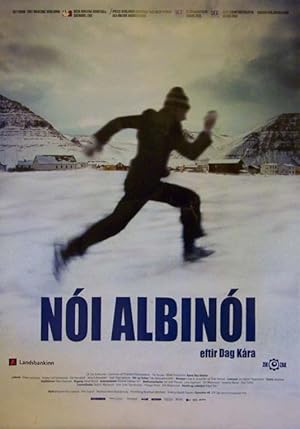Noi the Albino
| 2003Directed by: Dagur Kári
Main Plot
Noi the Albino follows the life of a young boy named Noi, who lives in a remote Icelandic village. Struggling with feelings of isolation and alienation due to his albinism, Noi finds it difficult to connect with the people around him. His days are marked by boredom and a longing for adventure, which leads him to daydream about escaping to a more vibrant world. As he navigates his mundane life, he develops a fascination with a girl named Iris, who represents a glimmer of hope and possibility. Meanwhile, his relationship with his eccentric mother and the local community adds to his sense of disconnection. The film captures Noi's attempts to break free from the constraints of his environment, exploring themes of identity, belonging, and the desire for freedom in a stark and beautiful landscape.
Characters
- Tómas Lemarquis plays Nói, a rebellious teenager in a remote Icelandic village, struggling with isolation and dreaming of escaping his monotonous life.
- Þröstur Leó Gunnarsson plays Kiddi, Noi's father, who struggles with alcoholism and represents the challenges and strained relationships in Noi's isolated life in rural Iceland.
- Elín Hansdóttir plays Iris, a love interest who inspires Noi to dream beyond his isolated Icelandic village, influencing his decisions and adding emotional depth to the storyline.
Ending Explained
In the ending of Noi the Albino, the protagonist, Noi, finds himself at a crossroads after a series of events that highlight his struggle against the confines of his small, isolated town. After a failed attempt to escape with his love interest, he becomes increasingly disillusioned with his life. The climax occurs when he decides to take a drastic step to break free from his mundane existence. Noi's journey culminates in a moment of reckoning as he confronts the reality of his situation. In a symbolic act, he sets fire to his school, representing his desire to destroy the oppressive environment that has stifled him. This act of rebellion is both liberating and destructive, encapsulating the internal conflict he has faced throughout the film. Ultimately, the ending leaves viewers with a sense of ambiguity. Noi's fate is uncertain as he drives away from the town, suggesting a potential for freedom but also hinting at the consequences of his actions. The film concludes on a note that reflects the themes of isolation, longing, and the search for identity, leaving the audience to ponder the complexities of escape and the cost of pursuing one's dreams.
